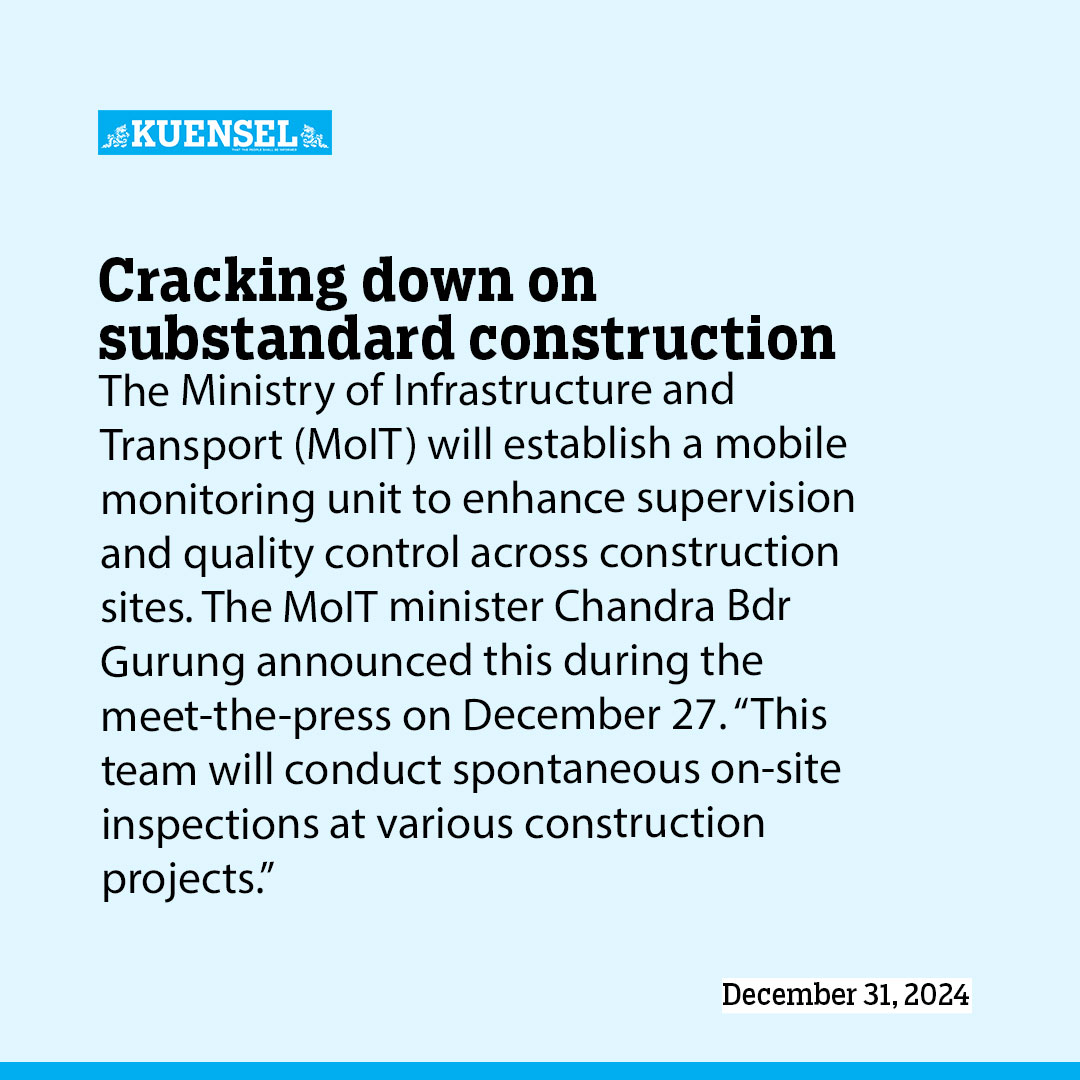MoIT to launch mobile monitoring unit to inspect construction sites
Sherab Lhamo
The Ministry of Infrastructure and Transport (MoIT) will establish a mobile monitoring unit to enhance supervision and quality control across construction sites.
The MoIT minister Chandra Bdr Gurung announced this during the meet-the-press on December 27. “This team will conduct spontaneous on-site inspections at various construction projects.”
The move follows alarming findings in the Royal Audit Authority’s (RAA) 2023-24 report, which highlighted significant shortcomings in planning, quality control, and compliance with standards.
The audit report identified 139 cases of defective and substandard work across 62 agencies and projects. Out of these, 91 cases have been rectified across 23 agencies.
The RAA raised concerns about the effectiveness of the National Construction Industry Policy 2020, which was designed to ensure higher standards.
The minister acknowledged that insufficient supervision is a key issue, citing the overwhelming workload faced by engineers who are often responsible for as many as 20 projects at the dzongkhag level.
To address these gaps, the MoIT plans to focus on several critical areas to ensure quality assurance, optimise public investments, and improve outcomes in the construction sector.
The ministry aims to strengthen project planning by allocating adequate time for detailed designs, cost estimates, and preparations. This approach is expected to reduce the risk of cost overruns and delays while improving clarity and decision-making.
The ministry will also focus on upgrading technical specifications by conducting regular review and update on technical specifications aligned with the latest industry standards, regulations and best practices.
This will ensure that construction methods and materials meet current quality expectations and improve overall project outcomes.
Lyonpo said that stricter certification standards will be introduced for contractors and consultancy firms.
The MoIT plans to enforce rigorous assessment criteria to ensure only firms meeting high-quality benchmarks are certified. Contractual provisions will be closely monitored to ensure effective project management and quality control.
To promote sustainability and reduce imports, the ministry will prioritise the use of locally manufactured construction materials for instance, use of local concrete bricks as substitutes for imported red bricks.
However, Lyonpo said that some manufacturers skip essential technical processes such as maintaining the correct water-cement ratio and proper curing, leading to subpar products.
To address these shortcomings, batch testing mechanisms and regular certification processes will be implemented to ensure consistent quality standards.
The MoIT also plans to leverage technology to modernise the construction industry. This includes adopting Building Information Modeling (BIM), construction management software, mechanisation, and prefabrication techniques.
BIM, for instance, allows for virtual project visualisation, facilitating better coordination among stakeholders and reducing errors during construction.
The construction management software will streamline planning and execution, improving efficiency and cost-effectiveness.


